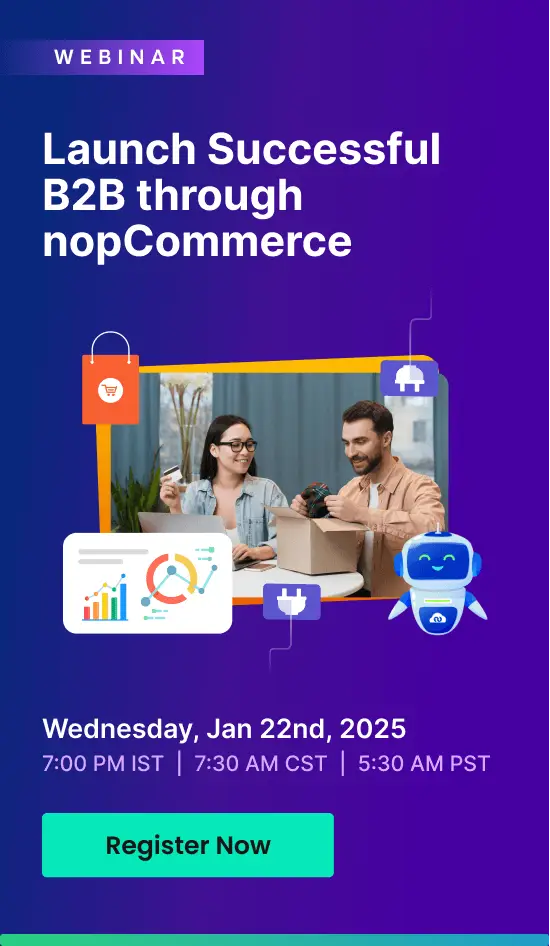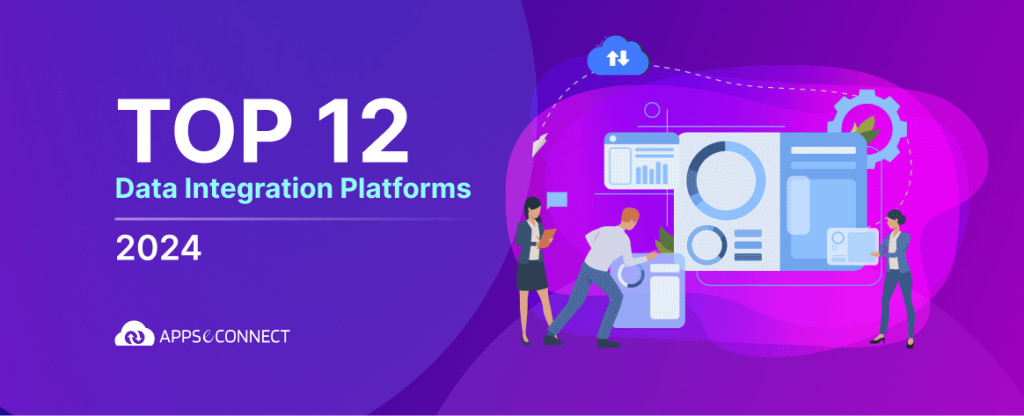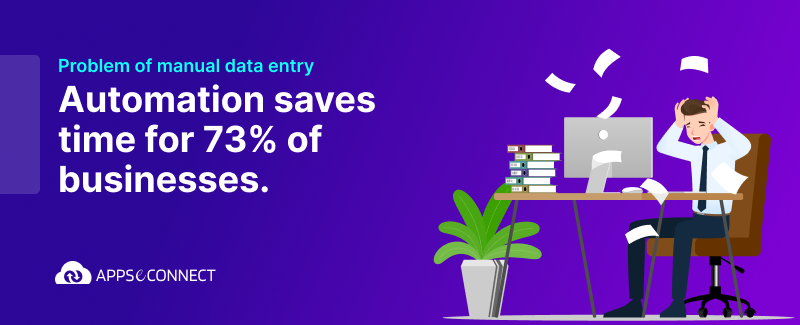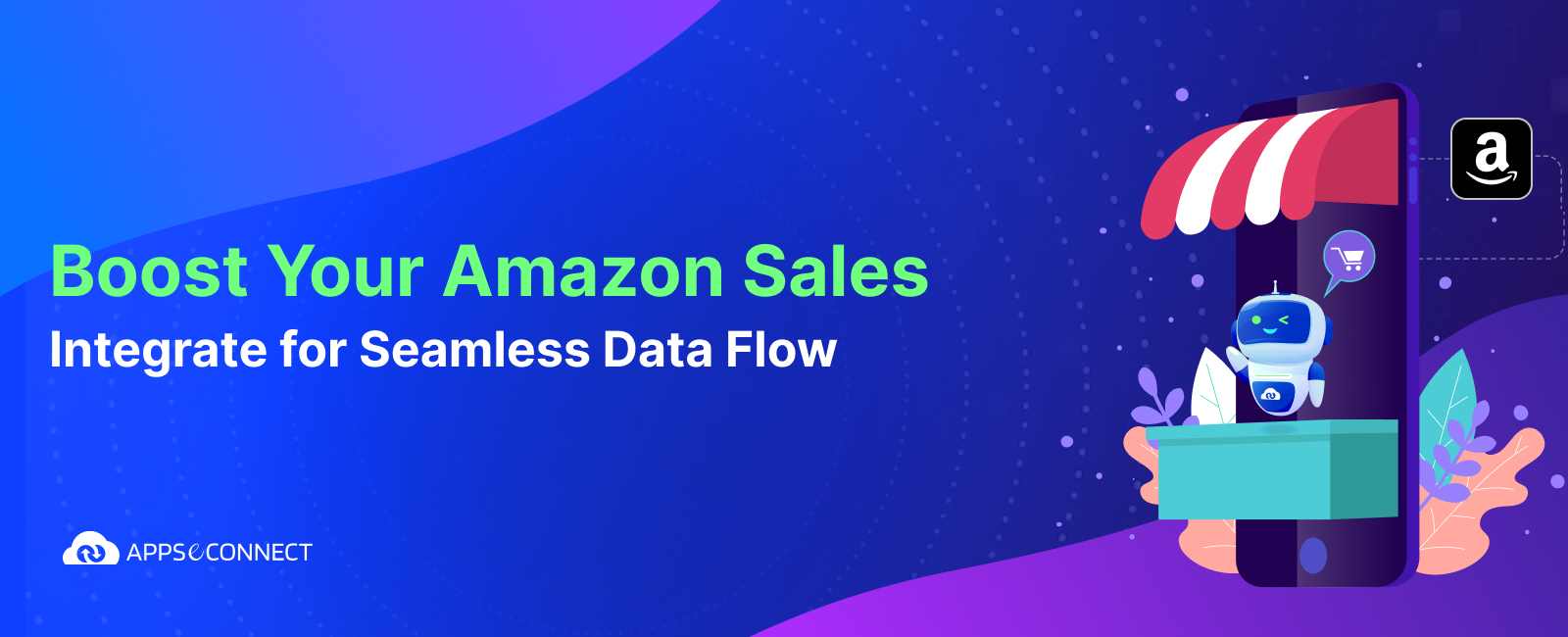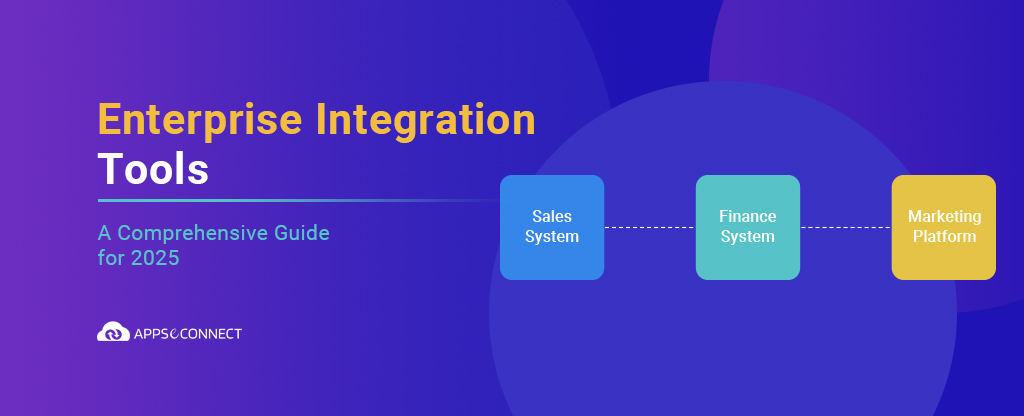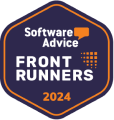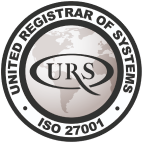With information being the driving force for any institution, keeping it accurate and updated throughout the organization is necessary. An Integration Platform as a Service (iPaaS) as a data integration platform helps achieve this by automating the process of data transfer across multiple databases across the company. With the time and resource optimization provided by such a platform, iPaaS solutions have become extremely popular. While there are several options in the market catering to these rising demands, not every solution is built to the standards to provide best-in-class robust integration functionalities for a business. Thus, business decision-makers need to look into the top data integration platforms for optimal results.
What are Data Integration Platforms?
A data integration platform is an application that helps businesses deploy integrations between cloud-to-cloud and cloud-to-on-premises business software applications. The platform is an all-encompassing solution for business integration that provides users with the tools and technologies to design and deploy integration flows, manage, and maintain integration lifecycles, and a system to monitor and resolve errors. Moreover, one of the reasons to implement a platform is to overcome the challenge of coding integrations from scratch. Thus, an integration platform also provides an intuitive, user-friendly environment to allow for the effortless development of integrations. To maintain the accuracy and consistency of the immense volume of data processing across the entire suite of business applications with an enterprise, the implementation of a robust data integration platform is necessary.
If you have multiple systems employed in your business and want to seamlessly integrate all the data and processes between them, connect them under one single platform with our hybrid iPaaS APPSeCONNECT. Automate business processes and improve your productivity and efficiency with us!
Why Does Your Business Needs Data Integration Platforms?
With the cloud application market expected to reach 168.6 billion U.S. dollars by 2025, organizations need to identify the best-in-class data integration solutions to ensure secure and reliable integration of their cloud solutions. A data integration platform also offers several competitive advantages to businesses, such as:
Reduced Operational Complexity
An integration developed from the ground up requires complex coding to create. Moreover, with multiple connected applications, the source of any error in the integration process can be very resource-intensive to identify and eliminate. A data integration solution with a low-code/no-code development environment removes the need for complex coding. With the system managing all the integrations, it also increases the stability of the integrations and streamlines the process of error detection and removal.
Cost-Efficient Implementation
Make or buy is one of the fundamental decision-making processes to identify whether to produce something in-house or purchase it from an external supplier. Having a dedicated in-house team to design, deploy and manage integration can be time, cost, and resource-intensive. By opting for an integration platform to maintain the integration, companies can streamline the design and deployment for integration and offload the upkeep of those integrations to the platform. With the platform replacing the need for a dedicated team, organizations can significantly bring down their operational costs.
Network-Wide Data Consistency Through Data Integration Platforms
Manual transfer of information across multiple databases increases the risk of data discrepancies. With the vast volumes of data processed through the entire digital infrastructure of an enterprise, manually maintaining accuracy for all individual data flow is impossible. Through integration automating the process of information transfer through synchronous bidirectional data flow, companies can remove human errors and effortlessly maintain data consistency across the network.
Allows Use of Best of Breed Solutions
No single software can carry out every individual process of an enterprise, which is why there are dedicated applications for ERP, CRM, eCommerce, and many more. But every implemented solution needs to communicate with each other to ensure coherency across the system. With the power of error-free end-to-end seamless integration provided by a data integration platform, enterprises can implement dedicated best-of-breed solutions while ensuring secure data transfer across them.
Eliminates Data Silos
Traditionally departments in a corporation would create, manage, and limit access to data to only themselves. These isolated databases or data silos are not readily or fully accessible to other departments of an organization. The lack of organization-wide transparency due to these silos prevents decision-makers from getting a comprehensive understanding of their company. The elimination of data silos through integration by a data integration platform provides a 360-degree view of analytical data that allows for data-driven decision-making and a better understanding of opportunities and threats.
Faster Time to Market
When designing a product, the development team may require details from different departments, such as customer requirements, grievances, pricing, etc. Having to toggle between multiple applications or ask for access to these details can cost precious time. A slow development life cycle can erode the target market. With the ready accessibility of relevant data through data integration, developers can focus on rapidly developing a customer-centric product and achieve a faster time to market. Moreover, with access to information on customer issues, companies can also quickly roll out features to address them, thus offering a better customer experience.
The 12 Top Data Integration Platforms to Look for in 2022
A robust data integration platform gives businesses a competitive edge. Thus, during the decision-making process of selecting the top-of-the-line integration platform, several features of the platform need to be thoroughly examined. Features to look for when choosing an ideal platform should include user-friendliness, API management capabilities, ready-to-use integration templates, and robust security protocols. Based on those criteria and the list from G2, the following are the top data integration platforms to look for in 2022.
APPSeCONNECT Data Integration Platform
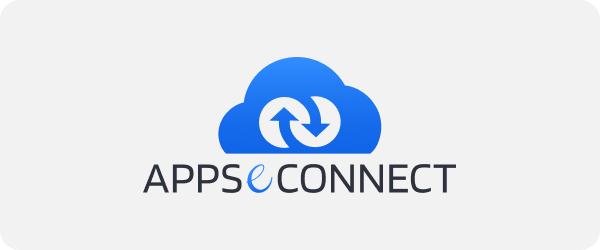
APPSeCONNECT is a next-generation intelligent iPaaS platform that offers end-to-end automation through time-tested pre-configured integration templates. The platform also comes packed with ProcessFlow, a robust, low-code, drag-and-drop visual integration designer that allows users of every skill level to deploy automation flows. For any additional custom integrations, a user may need, APPSeCONNECT also offers protocol-based adapters to connect all legacy applications that support standard protocols like FTP/Secure FTP, SOAP, REST, and SMTP.
Features:
- ProcessFlow, a graphical visual integration designer to create, manage and deploy integrations as per any business requirement.
- Time-tested, pre-packed integration templates with optimization according to industry best practices.
- API-led connectivity.
- Low-code intelligent integration.
- Improved overview through detailed execution reports.
- Automated data tracking and filters for ready identification and management of errors.
- Integration of any application through standard protocol-based adapters.
- Security through the limitation of sensitive data to on-premises systems.
- Allows a user to freely copy and reuse integration blueprints.
APPSeCONNECT offers its customers a 30-day free trial for starter growth and has four subscription tiers which include the Starter at $129 per month, Standard at $199 per month, Growth at $279 per month, and a custom quotation for Enterprise integration. To learn more about the features each package provides, visit the APPSeCONNECT pricing page.
Celigo

Celigo’s Intergrator.io is an intelligent and powerful iPaaS platform that uses intuitive user experience and AI to allow IT and non-IT users to build custom integrations, mappings, and embedded business logic to achieve business process automation. With pre-built integration applications with embedded business logic, non-technical users can readily implement connections and build on them.
Features:
-
- Pre-built integrations with embedded business logic.
- Enterprise-grade data security, including SSO.
- AI/Machine learning to manage and assist in integrations.
- AI-based error management.
- Manges updates and new features for connectors.
MuleSoft Anypoint Platform
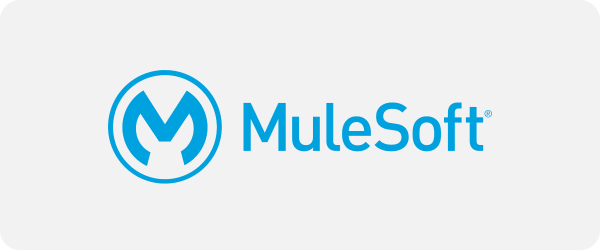
MuleSoft is one of the leaders in the data integration platform industry. Their MuleSoft Anypoint Platform offers robust hybrid integration capabilities across cloud and on-premises systems. The platform comes packed with a comprehensive set of features for multiple key industries such as banking, government, healthcare, and many more.
Features:
- Robust and secure hybrid integration capabilities
- Pre-built connector templates for faster integration deployment
- API management functionalities for both cloud and on-premises platforms
- Singular platform to design, deploy and manage APIs
Jitterbit
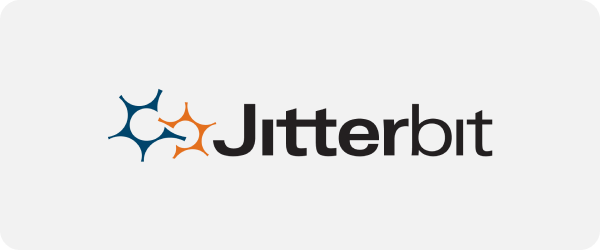
Jitterbit offers one of the most intuitive and cost-effective data integration platforms available in the market. Their platform enables users to streamline the process of on-premises and cloud SaaS applications integration and create new APIs through their extensive library of pre-built templates.
Features:
- A point-and-click graphical user interface to design and deploy custom integrations
- Functionalities to share custom-build integrations with teams
- Support for both batch and real-time processing operations
- A wide library of pre-built connector templates and workflows.
Workato
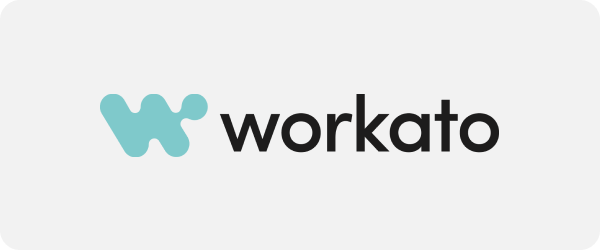
Workato is a modern low-code/no-code iPaaS solution that allows both business users and IT teams to accelerate their process of integration development through 1000+ pre-built SaaS integration connectors. It also increases the speed of data transfer to data warehouses through the removal of API complexities, infrastructure maintenance, capacity planning, and many more.
Features:
- A user-friendly low-code platform for developing data integration.
- Secure data access through selective exposure of data through APIs.
- Full API lifecycle management capabilities.
- Large library of pre-built connectors for SaaS applications.
Boomi
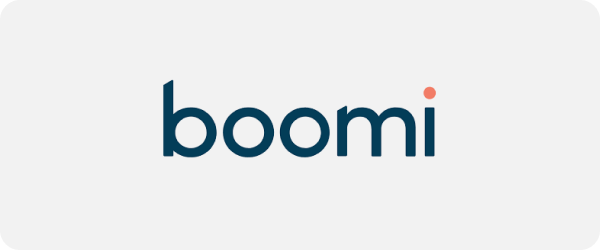
As a cloud-native platform, Boomi’s AtomSphere leverages the cloud to provide flexibility, agility, scalability, built-in redundancy, and automatic upgrades of integrations. The iPaaS platform delivers a centralized Master Data Hub for a single point of data access and through their Enterprise Data Catalog and Preparation offers access to organization-wide contextual data, whenever required.
Features:
-
- Cloud-native functionalities of flexibility and scalability.
- Integration deployment within a public cloud, private cloud, and on-premises through a lightweight run-time engine.
- Drag-and-drop low-code integration development.
- Suggestions for best practices based on anonymous metadata.
- Enterprise-grade full-spectrum data security.
Snaplogic
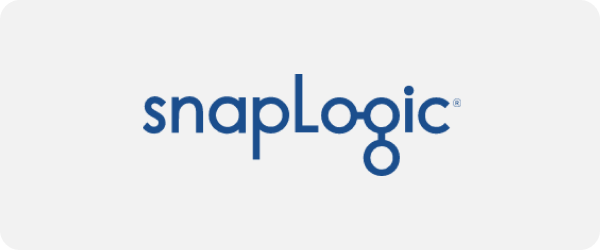
Snaplogic provides enterprises with an intelligent integration platform for robust hybrid integration functionalities. With Snaplogic flows, users can deploy codeless workflow automation and a fast data loader for instantaneous transfer of information from application endpoints into cloud data warehouses.
Features:
- Scalable, click-not-code application integration
- API development and management functionalities
- Automated data delivery to cloud data warehouses with visual data ETL (Extract, Transform and Load) and ELT (Extract, Load and Transform).
Make

Make, formerly known as Integromat, is designed to allow users to create, build and automate tasks and workflows through a powerful visual iPaaS solution. The platform offers thousands of connector templates for enterprises to save time during integration development and grow their business.
Features:
- Intuitive drag-and-drop builder to connect applications and build workflows
- Allows the creation of workflows with an indefinite number of steps and applications as per requirement.
- Offers an extensive library of premade connectors.
- Enables teams and customers to collaborate on workflows.
- Offers a no-code toolkit to control parameters of a workflow and allow data formatting.
Tray.io
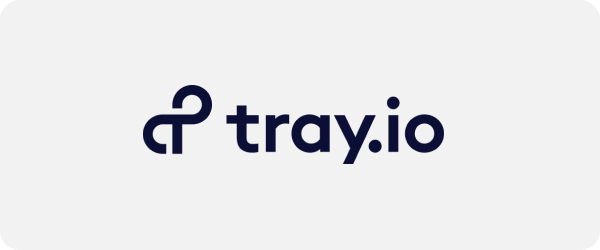
Tray.io offers an integration solution for end-users and an embedded integration platform for product leaders, services teams, and developers to offer integration functionalities for their customers. Tray.io offers intuitive visual tools to replicate the logic and flow of processes to allow any user to build integrations through APIs.
Features:
- Universal connectors for SaaS applications
- Full access to APIs
- Ready to use pre-built connectors for integrations
- API versioning capabilities.
Alumio
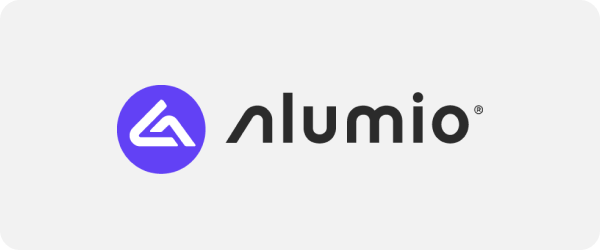
Alumio helps businesses accelerate their digital growth by enabling users to create, manage and monitor their software integrations through an intuitive graphical user interface. With fast pre-built connectors for line-of-business applications, smaller companies can reduce their time-to-market and accelerate their growth. It also provides a scalable infrastructure with a flexible SDK to help in future-proofing.
Features:
- Connects core systems with pre-built connectors and data mapping.
- Extended access to data and faster system connections through APIs.
- A vast library of generic client configuration protocols.
- Dashboard to actively monitor and log errors.
- SDK to develop custom functionalities.
- Provides a centralized platform to manage all data integrations.
Talend Cloud Data Integration

Talend provides simplified hybrid data integration capabilities through self-service and embedded data quality. Talend creates a universal source for data through the integration of any data type to any data source and destination. It also provides a streamlined pipeline for teams to design, deploy and reuse integrations.
Features:
- Visual pipeline to rapidly design, deploy and reuse workflows.
- Allow effortless connection of data from multiple sources.
- Offers a list of connectors for line-of-business applications
Pepperi
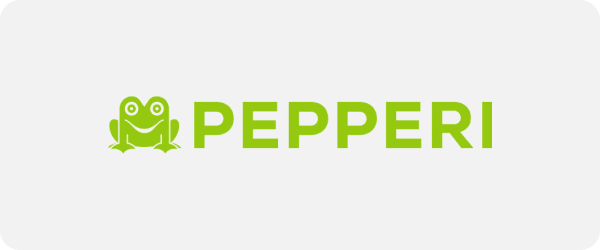
Pepperi is a robust iPaaS platform with APIs that offers flexibility to companies to automate their business processes and seamlessly share data across applications. The platform provides instantaneous access to data that allows for informed decision-making and the removal of data errors. The platform reduces time to market through API integrations and allows users to easily reuse existing web services and assets.
Features:
- Web admin console to configure and monitor integrations.
- Immediate creation of sales rep and customer transactions in backends systems.
- Schedules data jobs per synchronized business entity.
- Validation of processes, alerts, notifications and integration logs are shown in real-time.
Explore the Best Data Integration Platform for Your Business -APPSeCONNECT
While there are several top-of-the-line data integration solutions in the market, only one can be the best in the class. APPSeCONNECT as an enterprise-friendly, robust next-generation iPaaS platform not only provides a low-code environment to design, manage, and deploy integrations but also offers hybrid integration capabilities that allow for secure end-to-end integration of both cloud-to-cloud applications and cloud-to-on-premises applications as well.
APPSeCONNECT through Micro-Services ensures request processing for even large volumes is independent and fail-safe. This allows flexible scalability both horizontally and vertically across both Cloud and On-Premises infrastructures, which allows users to install multiple on-premises agents and create scalable cloud solutions for teams.
Robust security standards are also maintained by preventing the sharing of credentials and other business-critical data to the cloud. The built-in security layer safeguards any activity made through the platform and data downloaded from online servers go through highly encrypted channels to prevent data breaches. The platform also enables the allocation of specific users and roles to allow or restrict users of differing authority from performing certain operations such as editing integrations. With the expanded features and in-depth functionalities offered to users along with the vast library of
industry-leading business application connectors, APPSeCONNECT is the ideal solution for the full stack integration of their business.
In Conclusion
With the ever-growing databases of organizations, companies need a systematic solution that can help them manage and utilize information in these databases to the fullest potential. Through the help of a smart, fast, and intuitive data integration platform, enterprises can easily comprehend these vast amounts of data and gain the necessary insights to make long-term strategic decisions.
Through the help of APPSeCONNECT’s lean, future-ready integration platform, companies rapidly deploy a full-stack integration of their entire software infrastructure seamlessly and securely. With the power of APPSeCONNECT organizations can accelerate their journey to success.
If you have multiple systems employed in your business and want to seamlessly integrate all the data and processes between them, connect them under one single platform with our hybrid iPaaS APPSeCONNECT. Automate business processes and improve your productivity and efficiency with us!
All logos are trademarks of their respective owners.

